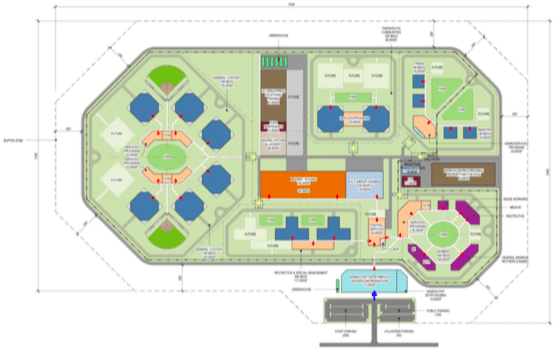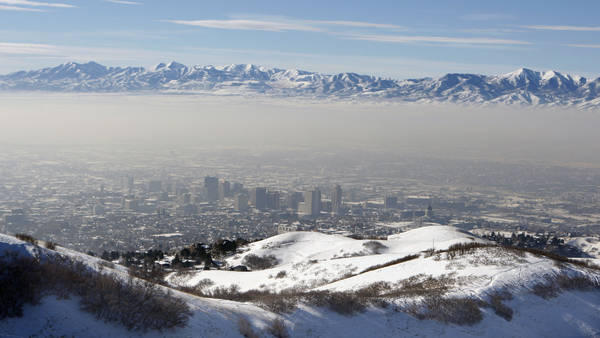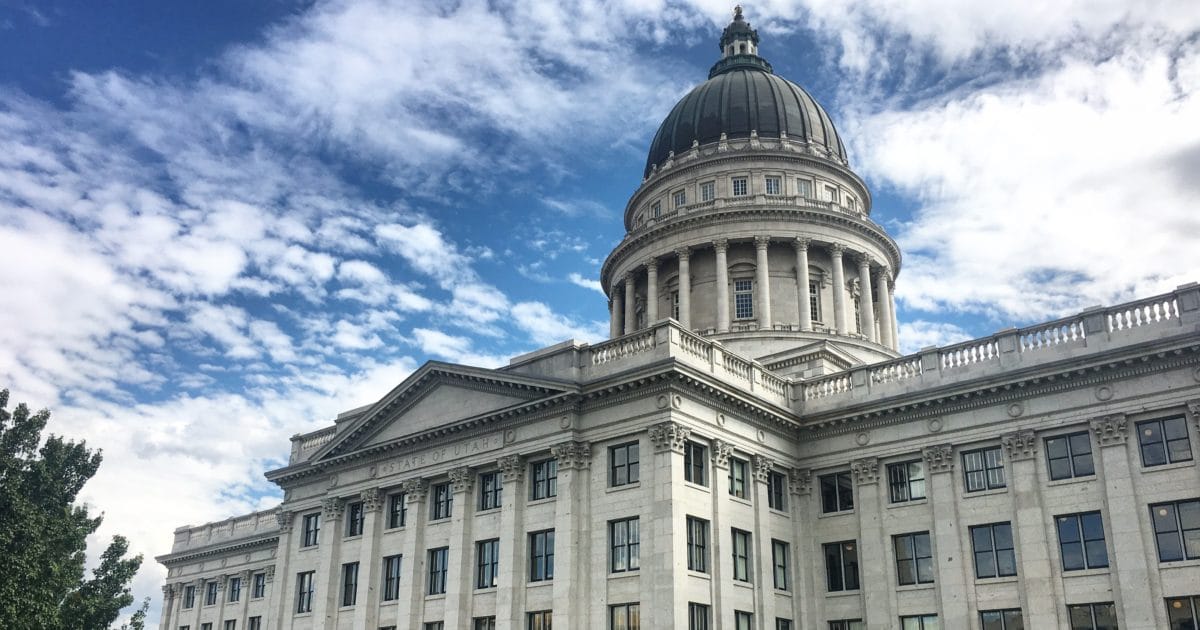Thought you had a nine-month break from the insanity that we call the Utah Legislature? You might not have known, but even though our representatives only formally meet together at the beginning of the year, they also meet almost every month in between to plan for those jam-packed forty-five days. Although some of the meetings are mind-numbingly dull (it is so easy to just fall asleep instead), I braved three days of committees because even though politics may be boring or frustrating, the decisions made up in these halls affect our everyday lives.
Read on for a summary of some of the more interesting topics that were covered during the September Interim Session. I’ll include links to audio recordings of the committee meetings as well as news articles covering the topics in case you would like to learn more. And remember! These interim sessions are meant for our representatives to plan for the 2017 Legislative Session and begin drafting bills, so if you have opinions on any of these or other topics, make sure your voice is heard and contact your legislator today!
New Utah State Prison

If you haven’t heard about the effort to move the Utah State Prison, then I’m assuming that you have been living under a rock for the past couple of years. As the current state prison down in Draper rapidly ages, lawmakers have been working towards building a new, modern prison. Their efforts have been strengthened by the fact that the area where the current prison currently sits is central to a high-tech development spree that has been dubbed “Silicon Slopes.” Lawmakers had quite the hassle trying to find a location for this new prison – every city they considered was adamantly opposed to having a new correctional facility in their city limits. Surprising? They eventually settled on a location in Salt Lake City on the west side of the airport out by the Great Salt Lake.
After appropriating $80 million in cash towards the new prison this last session, lawmakers heard about the progress the development team has been making and learned that they intend to close on the land by October 28th. There has also been considerable work done on creating the design for the prison. While trying to provide for all the security needs, officials are focusing on creating a normalized environment that will foster rehabilitation, reducing the rate of recidivism among prisoners. For example, they are not planning on having any guard towers around the perimeter of the new prison. (This might also lessen the eyesore of having a prison be among one of the first things that visitors see when flying into SLC International Airport…) The design plans to accommodate about 4,000 beds, with the possibility to add another 1,000 beds. Lawmakers questioned whether this was adequate for future needs, but we’re hoping that the current focus on criminal justice reform will drastically reduce the prison population in the coming years.
For more information, see this article from the Salt Lake Tribune or the new website from the Department of Corrections that should be updated as more progress is made. And, if you’re interested, here is the audio recording from the meeting and the powerpoint presented to lawmakers.
Air Quality

It’s starting to get colder and that means that inversion is just around the corner. Here in Utah, we exceed federal air quality standards on five percent of the days during a year. As the smog continues to fill more of our beautiful valleys every year, the quality of our air has been a huge bipartisan topic – everyone agrees that something has to be done to lessen the inversion along the Wasatch Front. What everyone does not agree on is what needs to be done.
This week lawmakers heard a presentation on the efforts to bring fuel and vehicles up to Tier 3 standards. Tier 3 is a new standard for fuels and vehicles being phased in over the next eight years that will bring about a seventy percent reduction in direct emissions from vehicles, and also limit sulfur in gasoline to create cleaner emissions. Lawmakers attempted to create incentives earlier this year for refineries to start making this cleaner fuel sooner than the 2025, but it remains to be seen whether they will take advantage of this new law.
Utah Clean Energy and Rocky Mountain Power also talked about the benefits of electric vehicles (think: less emissions) and their efforts to create the infrastructure to support these cars. Out of the almost 500,000 vehicles purchased in Utah since 2011, only about 2,000 of those were electric vehicles (about 0.4%). Other states have tax credits available to those who purchase electric vehicles, and groups are proposing that we do the same here in Utah. There are also efforts to build the charging stations needed for electric vehicles by giving incentives to employers to put them in at their businesses, as well as building superchargers along the I-15 corridor. But we need to act fast – it’s estimated that 35% of our cars need to be electrified in order to meet air quality goals if our population grows as fast as expected. Senator Jenkins scoffed at this projection, but shouldn’t we be taking our air quality seriously?
To listen to the recording, go here.
Education

Public education continues to be an important topic in Utah (as it rightfully should be!). In preparation for the Interim Session, Alliance for a Better Utah sent a letter to the Public Education Appropriations Subcommittee reaffirming our commitment to Utah’s public schools and asking, once again, that lawmakers adequately fund our K-12 public schools. Utah is struggling to find new teachers and retain the ones they already have, class sizes are too big, and our teachers are being stretched to their limits – both in their personal time and money. We need more funding for our schools! To read the copy of our letter and our press release, go here.
Lawmakers discussed two types of legislation they could be considering during the next session in 2017. The first relates to the path of alternative licensing that the State Board of Education recently adopted. Lawmakers propose that beginning in 2018, teachers pass a “board exam” that will test them both in content knowledge and pedagogical skills. This gives us a small measure of hope that this new alternative route to licensure won’t end up being a complete disaster, but wouldn’t it be better to know that your kids are in the right hands? The second piece of legislation being considered would equalize property tax revenue across districts. This was a pretty complicated discussion, but basically the state would be acting in a Robin Hood-esque role by taking ⅓ of the new money for public education each year, and directing it towards those districts that have smaller tax bases. We agree with lawmakers who said they need more time to study this issue to see whether it’s a good idea.
On a funny note, the State Charter School Board got slightly reprimanded for going behind the backs of the State Board of Education. They came to a committee meeting asking to be able to make budget requests directly to the legislature, rather than having to make them through the State Board of Education. Turns out they didn’t read the statutes or Utah Constitution closely enough, which put the State Board of Education in control of all public schools, and thus the State Charter School Board under their control. Oops.
For the audio of the education committee meeting discussing draft legislation, go here. To read a news article from the Deseret News about the proposed teacher assessments, click here.
Other Issues
I could go on and on about all the things I learned about this Interim Session, but – knowing that most of you have already given up reading by this point – I’ll just give a quick recap of some of the other important issues that were discussed:
- Hate Crimes Legislation: Senator Thatcher is reviving proposed legislation that Senator Urquhart was trying to get through the Legislative Session earlier this year that would strengthen hate crimes statutes. In addition to giving prosecutors the tools they need to actually prosecute these crimes, it would add gender, sexual orientation, and gender identity to the already existing protections. For more info, click here.
- Paid Parental Leave: Representative Romero gave a presentation on why the Utah government should offer paid parental leave to state employees. Currently, state law allows for medical leave after a birth or adoption; however, even though you can keep your benefits, employees are required to be unpaid during that time. Representative Romero sees this as an incentive for those that can’t afford unpaid leave and believes that paid parental leave would have positive effects on the health of the child and parents, provides economic security to Utah families, and would have positive workplace benefits.
- Elections: There was quite a stir a after the primaries when dozens of ballots were invalidated because of confusion whether they had been postmarked the day before the election as required by Utah law. Lawmakers believe this is a non-issue and decided not to pursue legislation to change the law, but are going to draft a law that would require counties that use mail-in-ballots to have drop boxes where voters could submit their ballots on election day. For more info, click here.
-Chase Thomas

